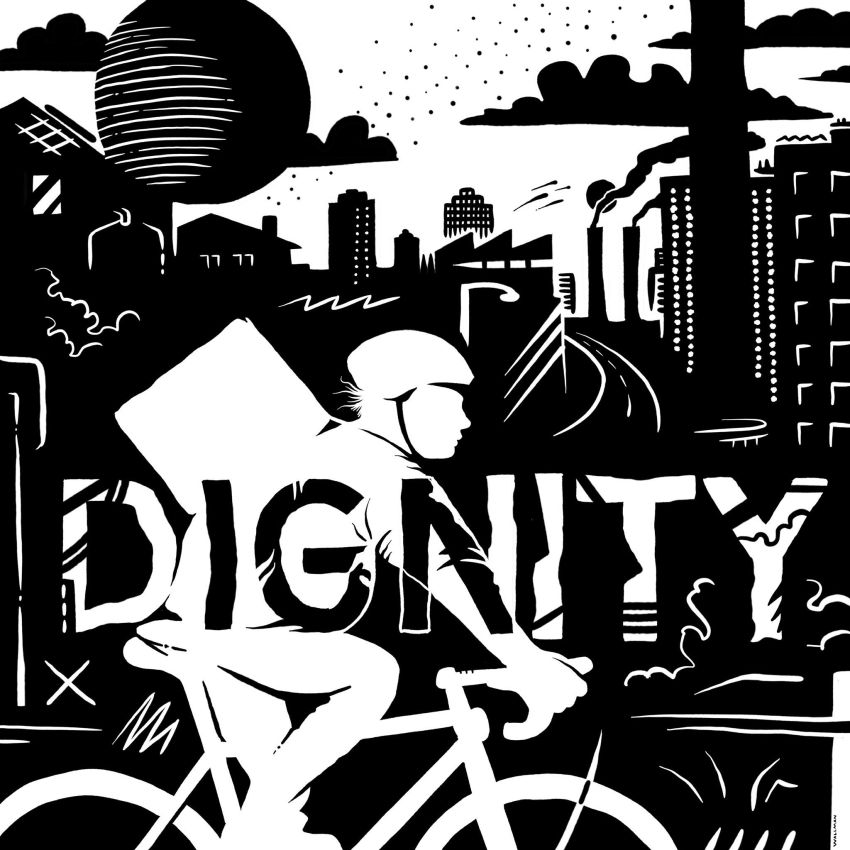
Gig economy workers scored a major victory when the Fair Work Commission (FWC) found on May 18 that Deliveroo rider Diego Franco was unfairly dismissed last year. Unfair dismissal is a protection only employees — and not contractors — can claim.
The case is significant as it contradicts previous rulings that decided that Uber Eats drivers are not employees. It adds to the growing momentum for gig economy workers to be recognised as employees and be granted work rights.
Franco was dismissed by Deliveroo in April last year after working for the company for three years. Deliveroo said he was terminated because he was too slow in delivering food orders.
Franco is a member of the Delivery Rider’s Alliance and the Transport Workers’ Union (TWU). The TWU supported Franco lodging an unfair dismissal claim with the Fair Work Commission. His claim relied on the commission recognising him as an employee rather than a contractor.
The ruling was based on the control Deliveroo has over its workers, including algorithms to measure performance data that the company then used to terminate Franco.
Previous rulings determined that gig economy riders and drivers do control their work as they decide when and where to make themselves available. However, in Franco’s case, the FWC recognised that delivery workers have to work at peak times — meal times — to make enough deliveries to survive.
TWU national secretary Michael Kaine told Green Left that the ruling is crucial as it “unpicks the lies of the gig-economy. Companies like Uber and Deliveroo have been using the mythology of flexibility and convenience to get away with eroding working rights.”
He argued that there should not be a binary between employee and contractor, but that rulings should be based on a “spectrum of dependency” and that a worker should be considered an employee if they are dependent on the company for providing work.
Growing anger among gig economy workers led to a protest in Sydney on May 19 that called on the government to regulate the gig economy to address the low pay, lack of rights and safety risks that led to the deaths of five delivery riders at the end of last year.
“The absolute tragedy of last year’s deaths has led to a growing understanding that things are wrong,” Kaine said.
A federal Select Committee on Job Security is looking into insecure work across multiple industries, including the food delivery sector. The TWU’s submission to the inquiry argued that the government should regulate the gig economy to ensure that “all gig workers could have basic working rights.” Kaine described the exploitation of gig workers as a “national emergency”.
The Guardian revealed on May 20 that Uber Eats drivers are making as little as $5 for deliveries across Sydney. A report commissioned by Uber found that average earnings for delivery workers was $21.55 an hour after costs, only during busy meal times. A TWU survey of rideshare drivers found this figure to be closer to $12 an hour.
Kaine said food delivery was vital under the COVID-19 pandemic lockdown and people would be willing to pay more if it ensured workers are paid properly and could work in safe conditions.
“The pandemic emphasised the value of these workers and exposed the sheer ruthlessness of work by algorithm,” he said.
Yet, 77% of Uber Eats workers were ineligible for special pandemic support as they were recent migrants. This figure tallies with a report from the federal government’s Migrant Workers' Taskforce, set up after last year’s deaths, which found that migrant workers are systematically underpaid and exploited. Gig economy workers represent a significant proportion of this cohort.
The exploitation of workers by tech giants, such as Uber, became an international issue after the British Supreme Court ruled in February that Uber drivers are workers, not contractors. Similarly, Deliveroo lost an appeal in the Netherlands against a ruling that said its workers are employees.
Delivery riders are getting organised to win rights, but they are up against powerful interests. “There is a lot of money behind these companies,” Kaine said, adding that “Uber spent more than US$500 million to ensure that the Proposition 22 vote fell in their favour.”
After a ballot at November’s California state election, tech giants were exempted from providing the full suite of mandated employee benefits, including time-and-a-half for overtime, paid sick leave, employer-provided health care, bargaining rights and unemployment insurance.
The TWU has had several recent wins. It has started negotiations with Hungry Panda about improved working conditions and Menulog recently said it will trial making workers employees, setting hourly rates of pay and granting employee benefits.
“The fact that delivery companies have split, with some agreeing to engage with workers concerns and some digging in and refusing, encourages the government to act,” Kaine said.
“The government needs to support companies who do the right thing by regulating those who do not.”
Kaine said the TWU was talking with former Attorney General and Minister for Industrial Relations, Christian Porter, about regulating the gig economy. However the new minister Michaelia Cash refuses to engage. He said Western Australia is discussing reviewing owner/driver legislation, and inquiries have been set up in Victoria and New South Wales.
Kaine wants “a standing body to be set up to overview the gig economy”, so that workers don’t have to “go to court every time they are victims of exploitation” and companies are won’t be allowed to get away with “tweaking their system slightly”.
Despite the atomised nature of the gig economy, workers are organising for their rights. Kaine said the TWU is “always signing up new members” and “will continue to support workers in their battles against exploitation”.
“It is crucial we keep up the pressure on these companies and governments to improve conditions for workers,” Kaine said. “This is a fight for the soul of the union movement; we must ensure all workers are protected from exploitation.”